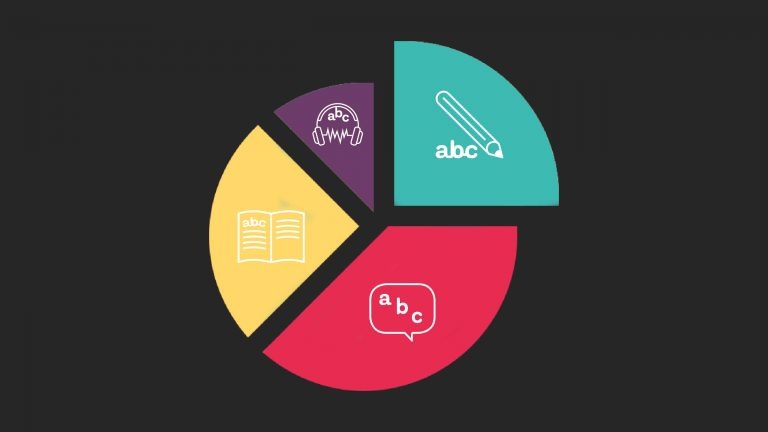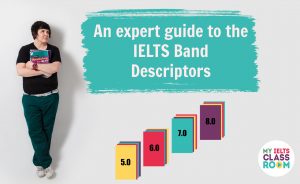
IELTS Exam Results: how you can apply for a breakdown of your speaking and writing exam scores
IELTS Exam Results
One of the main frustrations for IELTS test-takers is that IELTS does not provide a breakdown of the scores for writing or speaking. In other words, you know that you got a 6.5 for writing, but you don’t know why. Was it a problem with lexis? Did you write off-topic? Or was it your Task One that let you down? Until now the answer has simply been, only the examiner knows. IELTS exam results were essentially a black box.
However, this week, I received an email from a student that may change this. She was able to capitalise on the new European laws for data protection (called GDPR) to find out exactly what scores she was awarded in the 5 exams that she took earlier this year. Yes, she was able to find out her scores for Task Response, Coherence and Cohesion, Lexical Resource, and Grammatical Range and accuracy for Task One and Task Two, and her scores for Fluency, Lexis, Grammar and Pronunciation for listening.
How did she do this? Listen to find out and then follow the instructions in this blog post so that you can do the same!
Below, you can find a summary of the episode, which includes all of the links to useful materials and the times of each part of the discussion (so you can go directly to the part you want to listen to) 🚀
Subscribe to My IELTS Classroom podcast on Apple podcasts here
Subscribe to My IELTS Classroom on Google podcasts here
What is the current situation regarding IELTS exam results?
One of the main problems that IELTS test-takers have faced for many years is that there is no explanation of their exam results. You are given an individual score for reading, writing, listening, reading, and an overall score, but there is no indication at all of why you were awarded these bands. If you get your required score, then this is not a problem. However, if you have taken the exam 3, 4, 5, or even dozens of times and are stuck at a 6.5 in one area, it can be very frustrating not understanding why and where you are lacking.
The “black box” of IELTS test results is one of the reasons why there are so many conspiracy theories about the exam. Many students who are able to achieve a 7.5 or even an 8.0 in speaking but keep scoring 6.5 in writing again and again start think that something unfair is happening – they feel that the exam is “fixed” and that test centres are “fixing’ their scores.
Obviously, this is not happening, but it is easy to understand why students feel that it might be as there is so little transparency to the scores. If a student could see that in every exam they had scored highly for Grammatical Range and Accuracy and Lexical Resource but had scored poorly for Task Response and Coherence and Cohesion, they may start to understand that the problem lies in their academic skills, and that there is a genuine reason for their low score.
Want to know how the examiner will apply the band descriptors when marking your IELTS essay?
Then download a copy of our FREE e-book, which explains how each of the four marking criteria is applied and includes the most common errors made by test-takers. Just click here for your copy.

Why don’t IELTS currently provide a breakdown of exam results?
Honestly, I am not sure. My gut feeling is that it is to protect exam security. The more information that is revealed about a particular exam, the less secure it is in terms of students being able to cheat. Although Cambridge has created a massive bank of exams, questions are recycled and used again. If every test-takers was told, for example, how many questions they got right in a particular reading exam, this information could be used to work out the answers for a particular passage (assuming that a number of students could accurately remember their answers and compare them).
Another factor may simply be time and cost. Simply providing the final score is quicker and easier than generating a breakdown for each student. However, now that almost all test papers are marked online in giant marking hubs, this seems less reasonable than when each paper was marked at the original test centre.
How was your student able to get a breakdown of their IELTS exam results?
Last week, something rather special happened. I was contacted by a potential student who wanted help to improve their writing score to a 7.5. In our email exchange, the student mentioned that she had a breakdown of the 6 tests that she had sat in May, June and July and asked if I would like to see them. Obviously, I said yes, but at that time I was skeptical about what the “breakdown” was and how the student had obtained it.
Honestly, I expected the student to email me a document that just had her scores for LRWS (which is what students usually share with me), so I was shocked when I received this spreadsheet (I have removed some details for privacy)

As you can see, the document contains a breakdown of Writing Task One and Writing Task Two and Speaking. In other words, the student can see exactly where they went right and wrong in each section of the band descriptors for each test.
This is obviously a game changer
To say that I was shocked was an understatement. How had the student obtained this information? It all looked official and above board, but I had never seen a document like this. Having spent almost two decades teaching IELTS and complaining about the lack of transparency, there was the information that I had been searching for the whole time! When I emailed the student back and dug deeper into the situation, the puzzle pieces started to fit together.
What is General Data Protection Regulation and why is it important?
The General Data Protection Regulation (GDPR) is Europe’s new data privacy and security law is the toughest privacy and security law in the world. The regulation was put into effect on May 25, 2018 and, essentially, affects how companies can collect and store your personal data. In the past, companies were basically free to track your interactions with their website and store all of that information without restriction, and without you knowing what information they have. Now, everything must be transparent and you have the right to write to any company to find out what information they have stored about you.
Can you guess where this is leading?
As a European company, the British Council must obey the strict GDPR laws and share with you what information they have about you in their records – and this includes the breakdown of your exam results!
Very simply, if you write to the British Council and ask them to share the information that they have stored about you, they are legally obliged to do so.
How can I apply for a breakdown of my IELTS exam results?
You can find all of the information about Data Protection in the British Council on this page: https://www.britishcouncil.org/privacy-cookies/data-protection. Applications should take about 4 weeks to be processed, but my student got her breakdown withing 7 days, so they seem to be very responsive (although this may change in the future if more people apply). However, the language is quite legal and might be confusing for many students, so let me give you a simplified guide.
You will need to send an email to IGDisclosures@britishcouncil.org. In the email, you will need to include:
- Your name and proof of your identity (i.e. you can attach a copy of a passport)
- Your test date
- The name and address of the centre where you took the test (and the test centre number if you know it)
- The areas of the test that you would like to be broken down. If you look at the document that the student received, it says N/A for listening and reading, this is because she did not want to a breakdown for these. You are welcome to ask for all areas of the test though.
Here is a template of the email that you will need to send. All you need to do is copy and paste it, and add your personal details:
Dear British Council,
My name is ________ . In accordance with the GDPR, I am writing to ask for a breakdown of my IELTS scores for the following exam:
- Test Date: _______________
- Test Centre Name and Number: _______________
- Test Centre Address: _______________
- Computer based OR Paper-based
- Areas of the test I would like all stored information about: Writing, Speaking, Reading and Listening
I have also attached a copy of my passport so that you can confirm my identification, but please do not hesitate to contact me i you need any other information to process my request.
Many thanks,
_______________
Can anybody apply for a breakdown of their IELTS exam results?
Honestly, I do not know. I only discovered this information last week, and there are still some questions that remain unanswered:
- Can you apply from outside the EU? The GDPR is created for members of the European Union. If you sat your exam outside the EU, will you still be able to apply for the breakdown? I don’t know, but the simple way to find out is to try! If you do this, PLEASE leave a comment below or email me so that I can share the information with my students.
- Can you also apply for a breakdown if you sat your exam with IDP? Again, GDPR is designed for use in the EU and IDP is an Australian country so I am not sure if they are also bound by the law. However, my feeling is that they should be as they also operate in Europe. Again, the only way to know is to try! If you do try, you should email privacyofficer@idp.com.
Who will benefit from getting a breakdown of their IELTS exam results?
Honestly, I would say that every test-taker could benefit from knowing exactly how their paper was marked. After all, it will help you to target your preparation. However, there are definitely two groups of test-takers who this could help best:
- Students who have failed multiple times and do not have the guidance of a well-qualified teacher to help them understand where they are lacking.
- Students who are considering applying for an EOR but are not sure if the “gamble” is worth it.

Overall, I think that this news is an absolute gamechanger for IELTS students and will save many students time and money in wasted tests. I don’t think that this is an intended result of the introduction of the GDPR, but it is definitely a welcome one!
